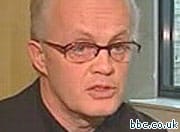A new call to decriminalise people who take drugs worldwide has been dismissed as “deeply flawed” and a “major step back”.
Speaking on Radio 4’s Today programme about the proposal, drug misuse expert Neil McKeganey said the idea would “dismantle the entire criminal justice framework” of countries worldwide.
This week Liberal Democrat leader Nick Clegg also backed a weaker approach to dealing with drug use, in a pre-manifesto document.
Possession
In a report released yesterday, the Global Commission on Drug Policy pushed for countries to: “Stop criminalizing people for drug use and possession”.
It also called for a United Nations meeting on drugs, set to take place in 2016, to “reform the global drug policy regime”.
The organisation said there should be “alternatives to incarceration” for “low-level participants” who farm, courier or sell drugs.
New problems
However, the White House Office of National Drug Control Policy said that while it partly agreed with some of the group’s aims, “we disagree that legalization of drugs will make people healthier and communities safer”.
It added that an “entirely new set of problems” is likely if drugs were legalised.
The Liberal Democrats’ statement on drugs came in a document which will be debated by party members next month.
Victims
In a section on “Preventing crime and helping victims”, it pledged to: “End the use of imprisonment for possession of drugs for personal use and move the drugs and alcohol policy lead from the Home Office to the Department of Health.”
Nick Clegg said the party was “not advocating blanket legalisation” but that “we need to look with an unprejudiced mind about the initiatives that other countries and states in America are doing”.
The American state of Colorado legalised cannabis at the beginning of the year, and since then has reportedly seen an increase in cannabis poisonings – including six children who ate the drug accidentally.
Last year former Scottish police chief constable Dr Ian Oliver warned against assertions from “self-appointed groups with grand sounding titles which have their own reasons for supporting legalisation”.

